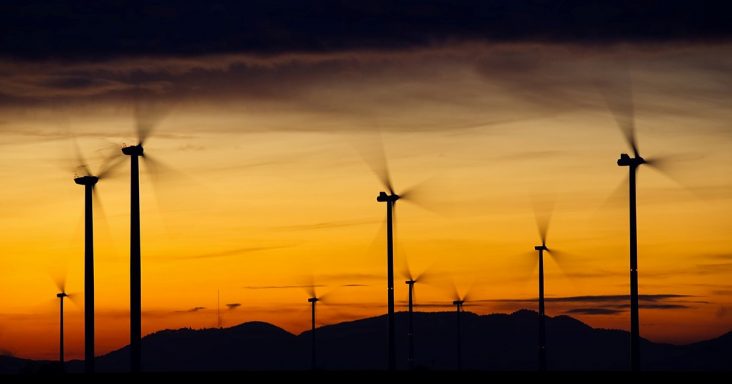Utility executives urge partnership with advanced energy companies for state policy advancement
by November 12, 2023 12:00 pm 986 views

Utility executives want collaboration between utilities and advanced energy companies to help guide policy and prepare Arkansas for the future.
William Cunningham, director of resource planning and market operations for Entergy Arkansas, and Charlie Spakes, manager of state government affairs for Black Hills Energy, discussed the importance of working together and developing policy to benefit the state.
They were among energy leaders from across the region who gathered Friday (Nov. 10) for the 11th annual meeting and policy conference of the Arkansas Advanced Energy Association (AAEA). For the first time, the business voice for advanced energy in Arkansas hosted the meeting in Northwest Arkansas. The Fayetteville event had about 200 attendees.
AAEA chairman Alex Ray asked Cunningham and Spakes about topics, including remaining competitive amid a transition from coal-fired plants, energy efficiency, sustainability and what they would like from the advanced energy industry.
“It’s all policy,” Spakes said. “If we can get together early and discuss pitfalls and not always agree… There’s a lot of room where our utilities and advanced energy people are going to work together…advancing policy for advanced energy that makes sense on an economic standpoint and for sustainability… Partner with us, and I hope you all see us…as friends, not adversaries.”
Cunningham said some Entergy customers are interested in sustainability and want to reduce carbon emissions, directly and indirectly. Entergy can work with advanced energy companies to help customers.
“There’s a lot of sustainability efforts that we see across our territory,” he said. “We expect that’s going to be big business as companies are coming out with sustainability goals. We have our own, but somebody’s going to have to be there to help solve that.
“No longer is there any industry I would consider that’s going to just ignore it and be dirty,” he added. “Everybody’s looking at how do you be more sustainable for the future.”
Cunningham said Entergy spends between $50 million and $70 million annually on energy efficiency. This work has prevented the company from adding a power plant, amounting to several hundred megawatts of savings, he said.
Spakes said Black Hills Energy expects to continue to invest in energy efficiency and noted the energy audits that are offered to customers.
On Nov. 1, Black Hills Energy started to allow customers to purchase renewable natural gas, and the average customer would spend about $20 monthly for net-zero consumption, Spakes said.
Cunningham also responded to concerns about a lack of available energy capacity and whether the state can remain competitive as coal-fired plants are retired.
“There is concern that Arkansas’ ability to be aggressive in our economic development and recruitment of economic development from our inexpensive power might go to the wayside,” Ray said.
Cunningham said the diversity in Entergy’s energy portfolio insulates the utility from price volatility. He noted that Entergy has about 2,000 megawatts of nuclear capacity that provide stable, low-cost energy. The utility also has natural gas and coal plants, about 281 megawatts of solar and 540 megawatts of solar capacity under construction.
He said he expects the capacity that’s being retired to be replaced by multiple energy technologies. One of the options he noted was the ability to offer multiple generation resources on the same interconnect, such as solar and wind or gas. Entergy also can import excess generation from other utilities on the grid, which is managed by regional transmission organizations. He noted that proposed generation projects in Arkansas exceed the load currently.
“Anybody in the energy industry should be excited because I’ve never seen so much new technology, the advancement in technology and how fast it’s coming. Twenty years ago, you’re options were nuclear, gas, hydro and coal,” Cunningham said. “Today, we’re talking about advanced storage options…solar…wind…biomass…hydrogen…ammonia. I think it’s going to open up the state [to] a lot of opportunities.”
He said the cost of advanced energy keeps Entergy from being an early adopter of new energy technology because it tries to remain competitive not only from an economic development standpoint but also for its customers.
Other topics discussed at the AAEA meeting comprised co-locating farms with solar arrays (agrivoltaics) in rural communities, limited transmission infrastructure slowing a coal plant retirement and federal funding available to the state for advanced energy projects.
